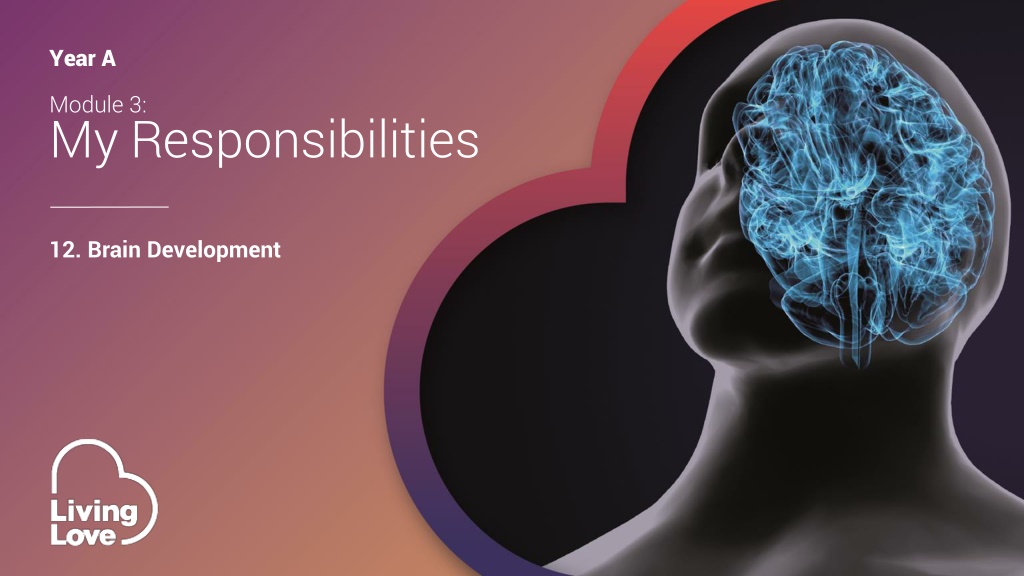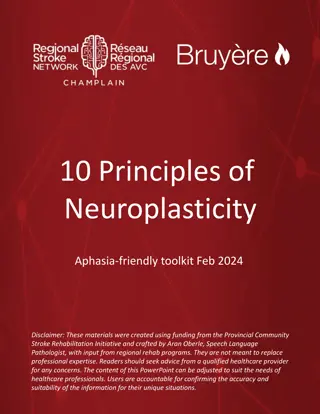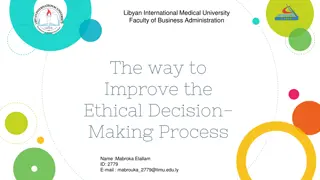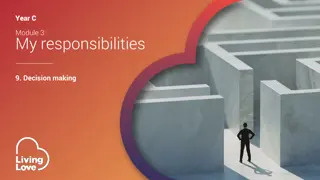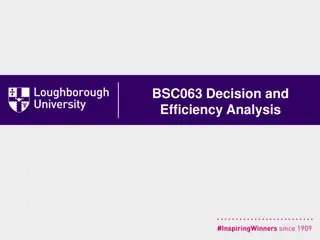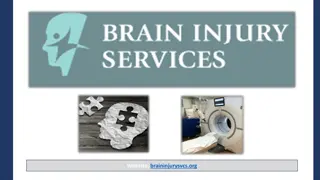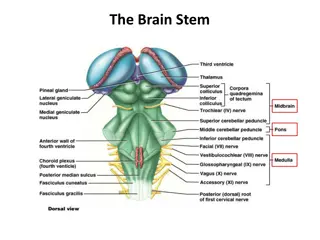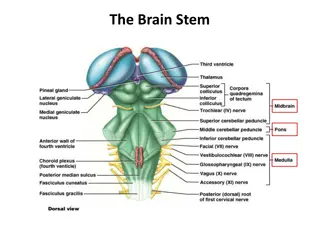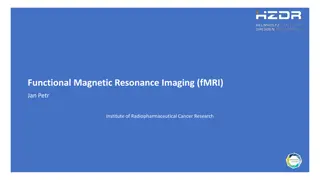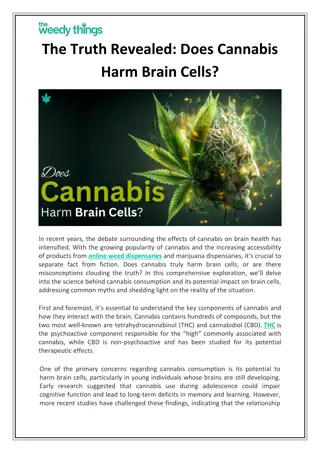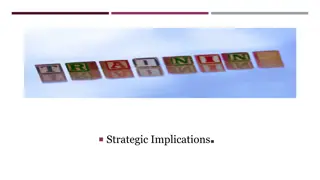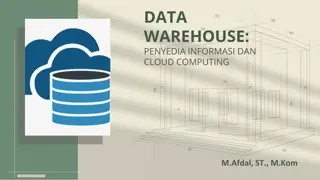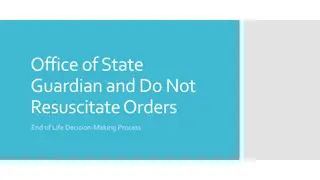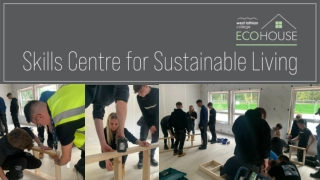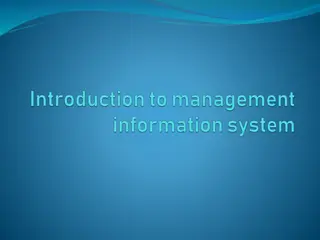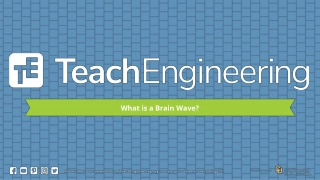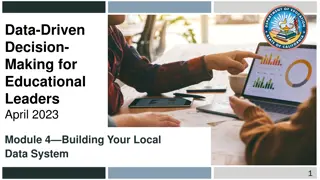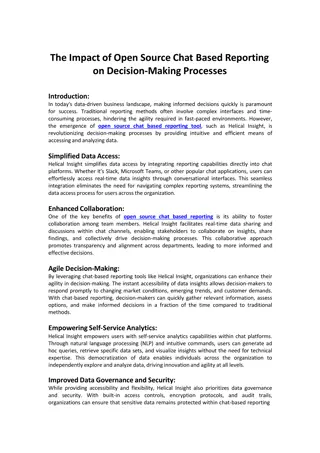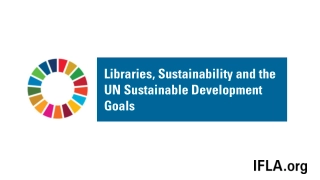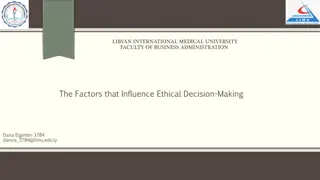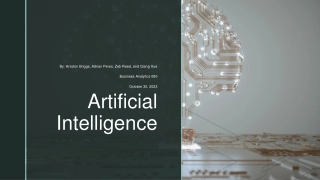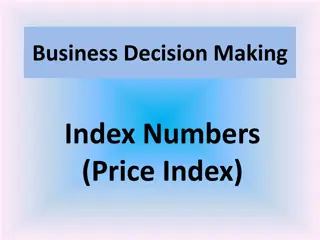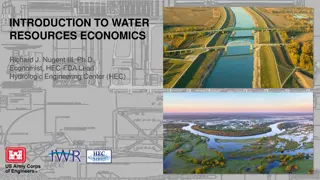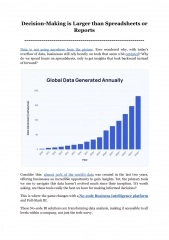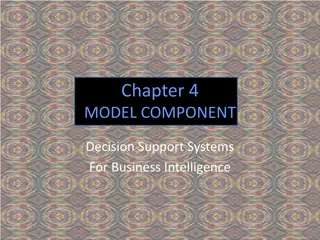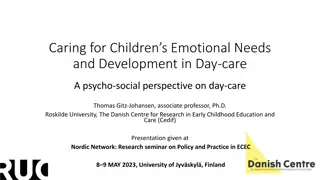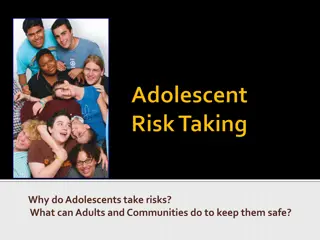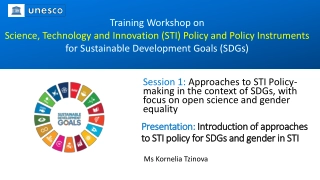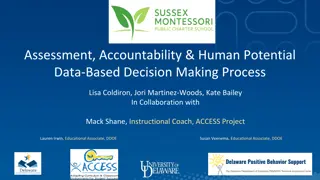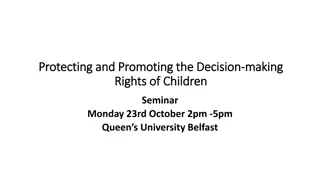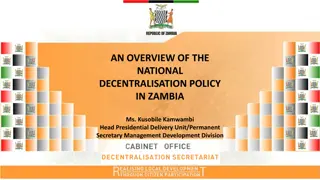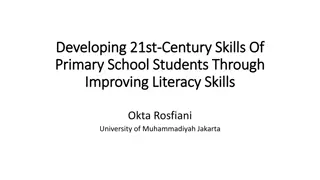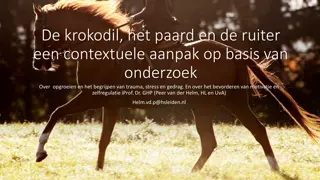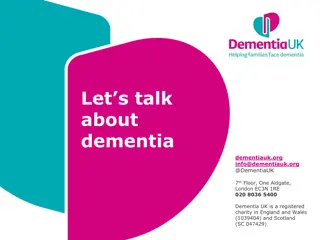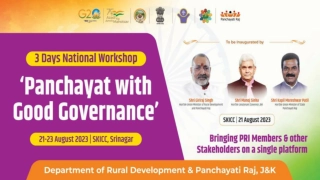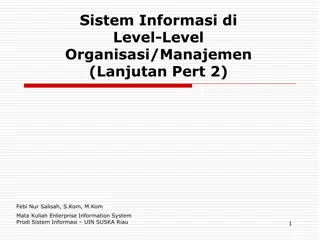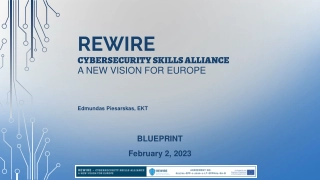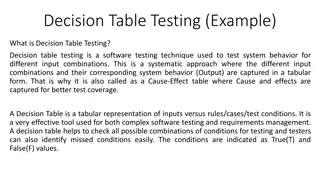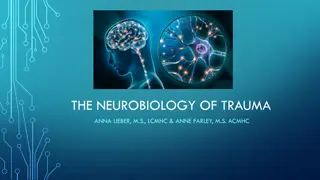Understanding Brain Development and Decision-Making Skills
Explore the fascinating realm of brain development and decision-making skills, focusing on how different brain regions activate during decision-making, the evolution of decision-making abilities from adolescence to adulthood, the importance of practicing decision-making skills, and the influence of brain maturity on cultivating prudence. Delve into ancient philosophical perspectives and modern psychological insights to gain a holistic understanding of the internal conflicts we face in decision-making processes.
Understanding Brain Development and Decision-Making Skills
PowerPoint presentation about 'Understanding Brain Development and Decision-Making Skills'. This presentation describes the topic on Explore the fascinating realm of brain development and decision-making skills, focusing on how different brain regions activate during decision-making, the evolution of decision-making abilities from adolescence to adulthood, the importance of practicing decision-making skills, and the influence of brain maturity on cultivating prudence. Delve into ancient philosophical perspectives and modern psychological insights to gain a holistic understanding of the internal conflicts we face in decision-making processes.. Download this presentation absolutely free.
Presentation Transcript
Year A Module 3: My Responsibilities 12. Brain Development
12. Brain Development Brain Development In this unit we will: Identify the different regions of the brain which are activated when either adults or teenagers are making decisions. Describe how the decision-making ability of the brain changes between adolescence and adulthood. Explain why teenagers need to practice decision- making skills in order to develop this key life skill. Explore how to work through a process of coming to a good decision.
12. Brain Development Life skill focus Prudence: Knowing the right thing to do and to follow through on that decision. Recognise that sometimes our emotions and hormones are driving our thought processes and learn to take control, rather than being controlled by them.
1.3.3. Brain Development The ability to make good decisions involves our whole person. The virtue of prudence is the life skill of knowing what the right thing to do is, and being able to do it. This common-sense virtue grows with effort and practice, and with the supernatural grace that we receive from God to help us with our decision making in life. On a biological level we also grow in the ability to make good decisions as our brain matures and develops. This unit will explore how brain development influences how we can grow in prudence.
12. Brain Development Thinking about thinking In ancient Greece, the philosopher Plato thought the soul could be divided into three parts, reason , spirit , and appetite . Even without the benefits of modern science, he was able to see that the internal conflicts and confusion we all feel pointed to our minds being torn in different directions. Reason , for him, was the reflective part of the soul, the seat of wisdom, while Appetite tended to draw us towards food, drink, sex, and other pleasures, and Spirit is how he described enthusiasm and determination. As he understood it, our mind was like a chariot, pulled by the horses of spirit and appetite, and with reason tasked with controlling them.
12. Brain Development Sigmund Freud, the Austrian father of psychoanalysis similarly divided the mind up three ways, with him calling the less conscious, desiring part of the brain the Id and the conscious and more rational part the Ego these correspond roughly to Plato s Appetite and Reason , while he believed that there was a third part, called the Superego , that operates like a moral conscience.
12. Brain Development In modern times, the psychologist Daniel Kahneman has shown that we can think in two different ways one way is fast, instinctive, and emotional, while the other is slow, deliberative, and rational. Another psychologist, Jonathan Haidt, thinks the best way to think of the brain is like an elephant with a rider. The elephant is our passions, our emotions, while the rider is our judgement and our reason. Very often the elephant controls what is happening, regardless of what the rider thinks, and sometimes the rider makes excuses for the elephant. The challenge is to help the rider control the elephant and that job is easier if the elephant is well-trained, which is where developing the cardinal virtues comes in so they become habits that are empowering in life.
12. Brain Development Written work What strategies can you plan to help you to make good decisions in the most important areas? Maybe there is a trusted adult you could consult with? Perhaps you could pray, and ask God for the wisdom that you need to make a good decision?
12. Brain Development Be aware, be responsible These are some of the decisions many young people face during adolescence. Which do you think are the most important decisions? What will you choose? Whether or not to study Which subjects to do in school What to do in your spare time Who to be friends with How to dress Whether or not to have a boyfriend/girlfriend How to do your hair Whether or not to have a social media account Whether or not to drink alcohol Whether or not to consume pornography Whether or not to take drugs Whether or not to take part in sexting
12. Brain Development Build Resilience, be connected Is there a good friend or mentor that I can turn to for support as I look to grow in independent decision making? You might like to pray regularly for the gift of prudence so that you can make good decisions.
